Your starting point.
Written version.
It’s no surprise acceptance work is so challenging. There’s much that goes on within the acceptance sphere and when we think we’ve got somewhere with it, something crops up and leads to us question ourselves all over again.
I like to place self-acceptance - and acceptance of chronic illness - into two camps.
There’s the micro: how your chronic illness fits into your body and life. How you resist or accept your chronic illness based on how it shows up in your daily life.
Then there’s the macro; how do I, a person with chronic Illness, feel I fit into the wider world and how do I feel about living with chronic illness within a society that expects certain things from a human?
Let’s say you’ve been working on the micro-acceptance front. You’re beginning to bring your chronic illness into the fold of your life and have opened yourself up to the idea of it being friend, not foe.
Then something happens out there in the world; maybe feeling really anxious about a date you’ve booked in with a friend or loved one, with building thoughts of how will my chronic illness show up on the day, will my date notice anything and judge me? Before you know it, you’re questioning all you thought you accepted about yourself, confusion has swooped in and you feel like you’re back at square one with it all.
OK, no surprises here but I’ll say it anyway; nothing will ever be perfect. You will never reach a level of acceptance that’s forever unshakeable. And that’s OK! The key is being able to bring yourself back home to your body, back to the Self you know is accepting and loving and caring, and back to an anchor point/s that is so solid, it’s hard to shift.
So, how do you chose anchor point/s?
I once wrote: “if you can’t commit to all-encompassing self-love, can you agree to love and nurture the parts of you, you do accept?”
I think we can apply the same idea to acceptance. If you can’t jump into the pool of acceptance, can you dip your toe in the water? Can you see what feels good to accept about yourself and your chronic illness, and not only start with that, but use it to hold you when you need it?
When things feel wobbly, that’s where you’ll find home.
Practice.
Before we begin, let’s have a think about what acceptance means. I believe it means something slightly different to every one of us, and its meaning can change throughout the time we’re on our acceptance journey.
What it doesn’t mean is that you’re giving up, that you’ve failed, that you’re resigning yourself to a life of pain and misery, that you’re unmotivated or that you have a victim mindset.
What it does mean, to me, in practice, is that in this moment, I am happy with how things are. I don’t wish for things to be any different. I am able to be with myself when things are difficult, challenging or tricky. I am able to look into the future of the growth journey I’m on and happily trust that everything is happening in the way it’s meant to, in the way that’s best for me.
OK, you may want to close your eyes for a moment of settling, and in fact at any point throughout this exercise, when you’re trying to tune into your feelings.
Connect with equanimity - let everything in this moment be OK. Give your inner safety and your parasympathetic nervous system a bit of love. Steady and elongate your breath; in through the nose and out through pursed lips for an even count of 4 each way.
When you feel centred, start to think of all the things you accept about yourself, your body and your chronic illness. Both in a micro and macro sense. For example; I am a kind, vibrant, grounded and wise person whose chronic illness only adds to my tapestry. The world is lucky to have me!
When you’re ready, slowly open your eyes and write those things down.
You can stop here if that’s what feels good today. Use what you’ve written as your anchor point/s.
Next, I’d like you to (if you’re not using the workbook) draw a line down the centre of the page to create two columns.
In the left hand column, write a list of the things you don’t accept about yourself, your body and your chronic illness, again in a micro and macro sense.
Please, be gentle with yourself with this one…what you write might come as a surprise, sometimes we don’t know these thoughts/feelings and beliefs are within us. Only do as much as feels comfortable; pushing and overstepping what feels safe is not a requirement!
NB: You’re doing this because awareness of how you currently feel about yourself - and knowing what you’re working with - is super helpful in this journey of growth.
Now, in the right hand column, see if you can reframe those thoughts/beliefs/feelings. For example;
Original thought/feeling/belief that supports non-acceptance:
I really wish I didn’t experience the pain I feel in my body.
Reframed thought/feeling/belief that supports acceptance:
The pain I feel in my body is all part of the conversation my chronic illness is having with me. I am open to hearing what it has to say. I send compassion to that pain. I choose to believe that I’m not being punished and that it will pass.
You can keep going with this for as long as it feels good. Next time your acceptance is challenged, remember these anchor points, come home to them. If it helps, write them out and have them in easy-to-see places, as supporting reminders.
Thank you for your openness and vulnerability today. Sending love to you.
